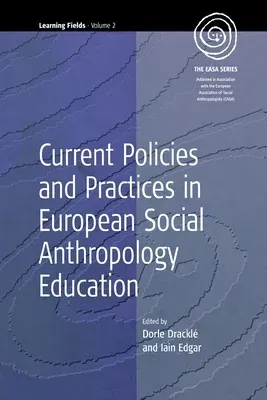Current Policies and Practices in European Social Anthropology EducationPaperback, 1 February 2004

Qty
1
Turbo
Ships in 2 - 3 days
In Stock
Free Delivery
Cash on Delivery
15 Days
Free Returns
Secure Checkout

Part of Series
Easa
Part of Series
Learning Fields
Print Length
256 pages
Language
English
Publisher
Berghahn Books
Date Published
1 Feb 2004
ISBN-10
1571816925
ISBN-13
9781571816924
Description
Product Details
Book Format:
Paperback
Country of Origin:
US
Date Published:
1 February 2004
Dimensions:
22.86 x
15.24 x
1.47 cm
ISBN-10:
1571816925
ISBN-13:
9781571816924
Language:
English
Location:
New York, NY
Pages:
256
Publisher:
Series:
Weight:
367.41 gm